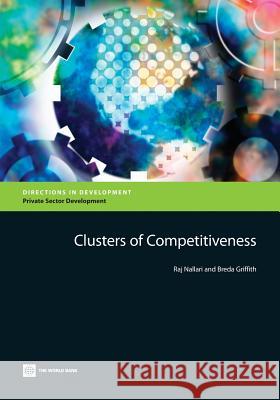Clusters of Competitiveness » książka
Clusters of Competitiveness
ISBN-13: 9781464800498 / Angielski / Miękka / 2013 / 144 str.
This primer on "Clusters of Competitiveness" provides a critical overview of competitiveness at many levels. Competitiveness is a broad subject with applications at the level of the firm, industry, region, nation, and global economy. Each one of these aspects has a rich literature drawn on by academics and policy makers over a long period. This book seeks to present a broad overview of the main ideas underlying competitiveness and its applications, highlighting and discussing in greater depth the topics that are of relevance currently. Specifically, the book draws out the experiences of and lessons for developing economies, and examines in detail the role for policy. Competition, competitiveness and growth are inherently linked and provide a compelling basis for policy analysis and recommendations. We begin by looking at competition and competition policy and the effects of these on economic growth. We concentrate on product market regulation and find that more stringent regulation is negatively associated with economic growth. Competition policy has an important role to play in promoting growth. We highlight the reasons why competition policy is critical for developing economies in the current era of globalization and liberalization. Moving on, we next provide an overview of competitiveness, highlighting its application to the firm, nation and global economy. We differentiate between price and non-price measures of competitiveness, examining the advantages and disadvantages of each and providing a clear guide to the non-price measures that have proliferated in the business literature in recent decades. We examine how the concept of national competitiveness has evolved. We classify this according to price and non- price measures. Data from the International Institute for Management Development, the World Economic Forum and the World Bank are discussed, illustrating competitiveness rankings across countries over time. We then turn to innovation emphasizing its relationship to economic growth and competitiveness. The modern, knowledge-driven globalized economy is a product of innovation and competitiveness. Drawing on this, we next examine the necessary elements of an effective innovation policy in meeting the economic and social challenges of the modern age. We conclude this primer with a critical overview of clusters and the stimulus for economic development at the local, regional and global level that arises from the connections between firms forming clusters. We look at cluster initiatives, which are organized efforts to increase growth and competitiveness within a region and are also a tool for government in pursuing policy reform











